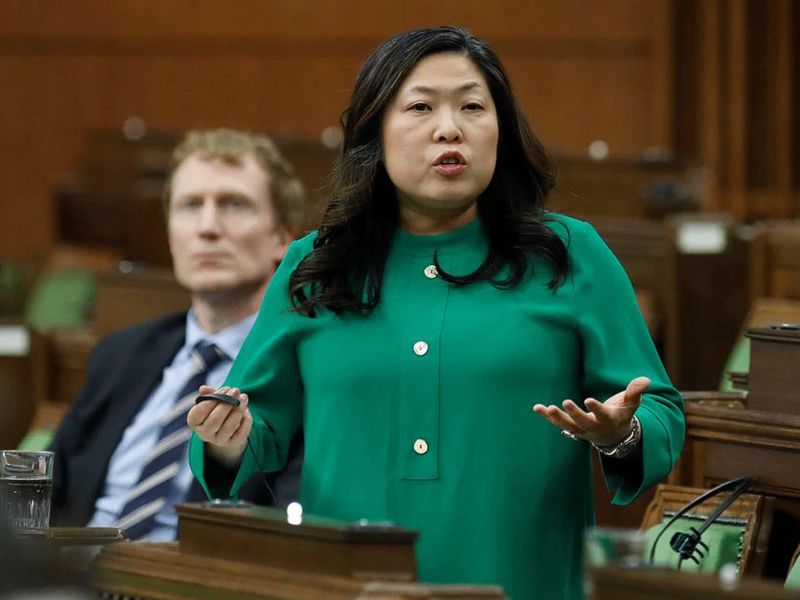
WASHINGTON — Canada is threatening to impose tariffs on U.S. exports, including auto sector goods, if Congress advances a proposal on electric vehicle tax credits that the Canadian government says poses a “significant threat” to its automotive industry.
In a letter sent Friday to U.S. Senate leadership, Canadian Deputy Prime Minister Chrystia Freeland and Trade Minister Mary Ng said they are “deeply concerned” about the proposed EV tax credits in the Democrats’ Build Back Better Act.
“We want to be clear that if there is no satisfactory resolution to this matter, Canada will defend its national interests, as we did when we were faced with unjustified tariffs on Canadian steel and aluminum,” they wrote in the letter.
“In that regard,” they continued, “Canada will have no choice but to forcefully respond by launching a dispute settlement process under the USMCA and applying tariffs on American exports in a manner that will impact American workers in the auto sector and several other sectors of the U.S. economy.”
The Canadian officials said they are preparing to publish a list of U.S. products “in the coming days” that may face tariffs if there is no “satisfactory resolution.” The tariffs would include the auto sector, among other industries, the letter states.
“At the same time, we intend to make clear which U.S. businesses and workers will be impacted,” they wrote.
At issue is a proposal championed by Michigan Sen. Debbie Stabenow and Rep. Dan Kildee that would boost consumer tax credits to as much as $12,500 for EVs assembled in a factory represented by a labor union with U.S.-produced batteries. After five years, only EVs assembled in the U.S. would be eligible for the proposal’s $7,500 base credit.
The proposal is backed by President Joe Biden but faces potential roadblocks as the Senate takes up the massive social spending and climate bill.
Recipients of the letter include Majority Leader Chuck Schumer, Minority Leader Mitch McConnell and Sen. Joe Manchin, a Democrat from coal-producing West Virginia and a key swing vote who has called the proposal’s $4,500 additional tax credit for union-made EVs “wrong” and “not American.”
American Honda, Tesla, Toyota, Volkswagen Group of America and other non-Detroit 3 automakers have fiercely opposed the proposed EV tax credits. Autos Drive America, which represents the U.S. operations of international automakers, and the American International Automobile Dealers Association also have lobbied against it.
Canada and Mexico previously have warned U.S. lawmakers and the Biden administration that the proposed EV tax credits could violate trade agreements and harm the North American auto industry.
Mexico earlier this month called the proposal “discriminatory” and said it was analyzing a range of legal actions, including tariffs, Reuters reported.
On Monday, the European Union also raised “strong concerns” over the proposed EV tax credits.
In a letter sent Dec. 3, Valdis Dombrovskis of the European Commission urged Senate lawmakers to remove “all elements” of the EV tax credit proposal that he says would discriminate against EVs imported from the EU as well as EU companies and the American workers those companies employ.
The Senate is rushing to finish the Build Back Better bill before the end of the year.

